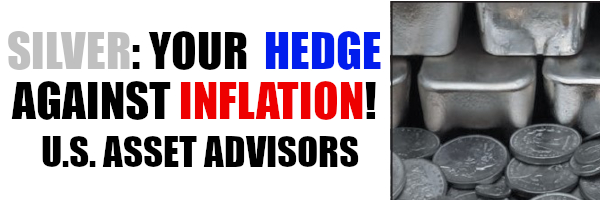
By Mike Walsh
When pondering the chronic power crisis affecting South Africa, one is reminded of the term ineptocracy: “A system of government where the least capable to lead are elected by the least capable of producing, and where the members of society least likely to sustain themselves or succeed, are rewarded with goods and services paid for by the confiscated wealth of a diminishing number of producers.”
Today, rolling blackouts in South Africa are largely responsible for the country’s gross domestic product (GDP) shrinking more than predicted. Official data shows a drop of 1.4% between October and December, instead of the 0.4% predicted.
The impact of power outages was bound to have a knock-on effect on the republic’s economy. Only two days of the October to December period were free of power cuts. Businesses have been paralyzed by the disruptions. Production costs soar as they are forced to purchase alternative resources.
Seven out of South Africa’s 10 industries experienced a decline in the last three months of 2022. The republic’s essential agriculture and mining industries were the biggest victims, both contracting by over 3%.
The South African economy did grow by 2% in 2022, However, this is still well below the 5% to 6% target band that economists say will make an impact on the country’s 33% unemployment rate.
Former Eskom CEO André de Ruyter’s hasty exit from the South African public electrical utility follows a damning tell-all interview that ran on local partner channels eTV and ENCA prior to his decision to step down. De Ruyter accused the governing party, the African National Congress (ANC), of using the state-owned company as a “feeding trough.”
He also alleged that unnamed senior government officials, including a minister, were benefitting from coal deals at the utility.
Throughout de Ruyter’s hour-long interview were scattered implications of malpractice. The then-CEO alleged that criminal gangs were doing business with Eskom. There has been at least one attempt on de Ruyter’s life since he announced his intention to take the retirement option. Is it because he knows where the bodies are buried?
Caught between a rock and a hard place, de Ruyter was afterwards summoned by the Standing Committee on Public Accounts (SCOPA) to name names and to provide evidence.
Damned if you do, damned if you don’t. The invitation to attend is still on the table. The ruling ANC has denied claims that party officials are complicit in Eskom corruption, describing de Ruyter’s accusations as “unacceptable, irresponsible and baseless.”
Reacting to the exposé, the government minister in charge of Eskom, Pravin Gordhan, said the former utility boss should keep his political views to himself and instead focus on ending blackouts. The business executive was due to leave Eskom anyway, but his comments have led to an earlier departure. Eskom would not be drawn in by de Ruyter’s allegations, saying its focus was on hiring his replacement.
De Ruyter was with the power company for less than three years. His leaving comes amid crippling blackouts across the country. This week, South Africans have endured between 10 and 12 hours of power cuts each day.
South Africa’s President Cyril Ramaphosa has appointed a minister of electricity as the republic experiences its worst-ever electricity crisis. Millions of people are without lights every day, sometimes for up to 10 hours, in cities and towns across South Africa.
The power cuts, referred to as load-shedding, have caused much frustration, not least on the roads as failed traffic light systems cause gridlock. During power cuts, mobile phone networks are often down, making communication difficult. For those who cannot afford alternative sources of power like generators, and they are the majority, it means cold dinners and homework by lamp or candlelight.
The impact on the economy has been huge. Businesses have been closing, and jobs have been shed as companies see their production costs rising as they are forced to seek backup power. Only two days in the last quarter of 2022 were without power cuts.
There may be hope if Russia can come to the rescue. The Russian Federation is the world’s No. 1 provider of nuclear generation plants—with strings attached. The Republic of South Africa is a founding member of the rapidly expanding BRICS trading bloc.
South Africa’s Achilles heel is its declining GDP, which is related to crippled Eskom. It is glaringly obvious that South Africa’s light at the end of the tunnel may well be a Russian rescue train arriving at Pretoria.
As I write so also do the scribes scattered throughout the offices of Atomenergoprom, the holding company for Russia’s entire civil nuclear industry. In February, Russian Foreign Minister Sergei Lavrov paid an official visit to South Africa where he was enthusiastically welcomed. His visit coincided with a joint naval exercise in which Russian and Chinese navies integrated the South African navy. Connecting the dots doesn’t require much thought.
Michael Walsh is a Liverpool-born Irish author and award-winning journalist. The son of a man who was an associate of Ernest Hemingway, contact Walsh at [email protected]. Walsh is the author of Rhodesia’s Death; Europe’s Funeral, Africa’s Killing Fields and The Last Gladiators (of Africa).






